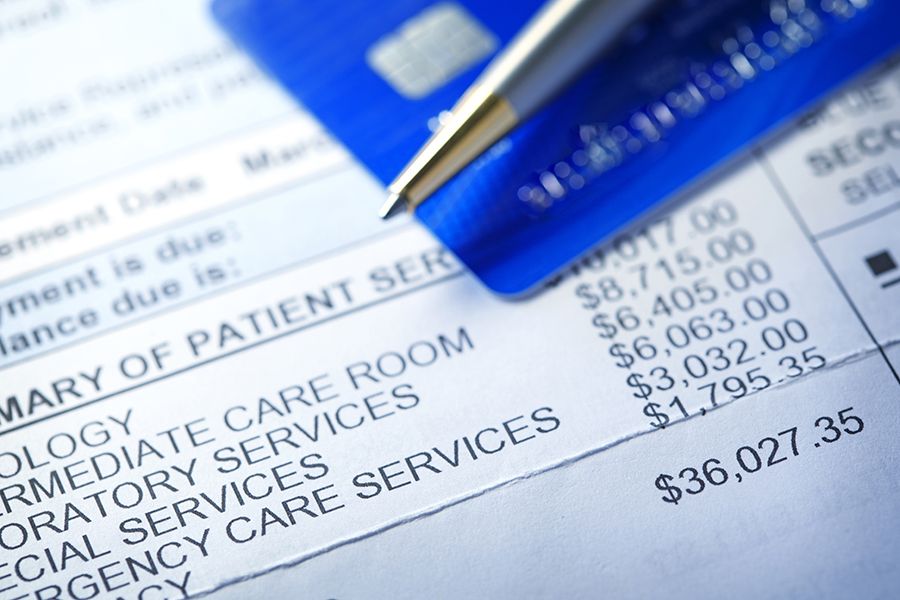Medical expenses can be a significant financial burden, and many people struggle to pay their hospital bills on time. One common question that arises is whether paying these bills can help build credit. In this article, we’ll explore the impact of medical debt on your credit score and provide insights into managing healthcare expenses effectively.
The Truth About Medical Debt and Credit Scores
Contrary to popular belief, paying hospital bills on time does not directly improve your credit score. However, failing to pay these bills can have negative consequences for your credit. Here’s how it works:
-
Paid Medical Bills: If you pay your medical bills in full and on time, they will not appear on your credit report or affect your credit score positively or negatively.
-
Unpaid Medical Bills: If you fail to pay your hospital bills, the healthcare provider may eventually send the debt to a collection agency. Once the debt is in collections, it can appear on your credit report, potentially damaging your credit score.
The good news is that medical debt is treated differently than other types of consumer debt. The major credit bureaus (Experian, Equifax, and TransUnion) have implemented specific rules regarding medical collections:
-
Grace Period: There is a 365-day grace period before medical collections can appear on your credit report. This grace period allows time for insurance payments to be processed and for disputes or payment plans to be arranged.
-
Removal of Paid Medical Collections: As of July 2022, paid medical collections have been removed from consumer credit reports across all three major credit bureaus.
-
Removal of Small Medical Collections: Starting March 31, 2023, unpaid medical collections with an initial balance of less than $500 will no longer be included on credit reports, preventing them from impacting credit scores.
It’s important to note that while these changes provide relief for consumers, larger unpaid medical collections can still negatively impact your credit score once they appear on your credit report after the grace period.
Strategies to Manage Medical Bills and Protect Your Credit
Dealing with medical bills can be overwhelming, but there are strategies you can employ to avoid damaging your credit:
-
Review Bills Carefully: Scrutinize your medical bills for accuracy and promptly address any errors or discrepancies with the healthcare provider or insurance company.
-
Negotiate and Set Up Payment Plans: If you cannot pay the full amount upfront, contact the healthcare provider and negotiate a payment plan that fits your budget. Many providers are willing to work with you to avoid sending the debt to collections.
-
Seek Financial Assistance: Explore options for financial assistance, such as government programs, hospital charity care policies, or nonprofit organizations that may help cover your medical expenses.
-
Monitor Your Credit Report: Regularly check your credit report from all three major credit bureaus to ensure that any paid medical collections have been removed and that no inaccurate information is being reported.
-
Dispute Errors: If you find inaccurate medical debt information on your credit report, file a dispute with the credit bureaus and provide supporting documentation to have the errors corrected.
-
Prioritize Payments: If you have multiple debts, prioritize paying non-medical debts first, as they may have a more significant impact on your credit score.
Final Thoughts
While paying hospital bills on time does not directly build credit, it is crucial to avoid letting medical debt go into collections, as this can severely damage your credit score. By being proactive in managing your medical expenses, negotiating payment plans, and monitoring your credit report, you can protect your credit score and maintain a healthy financial standing.
Remember, communication is key. If you’re struggling to pay your medical bills, reach out to the healthcare provider and explore your options. By taking a proactive approach and staying on top of your medical debt, you can prevent it from becoming a long-term issue that negatively impacts your credit and financial well-being.
Do Hospital Bills Affect Your Credit? – CountyOffice.org
FAQ
Can paying medical bills increase credit score?
Will medical bills be removed from credit report?
Will medical bills affect my credit score 2024?
Do medical bills affect your credit when buying a house?

